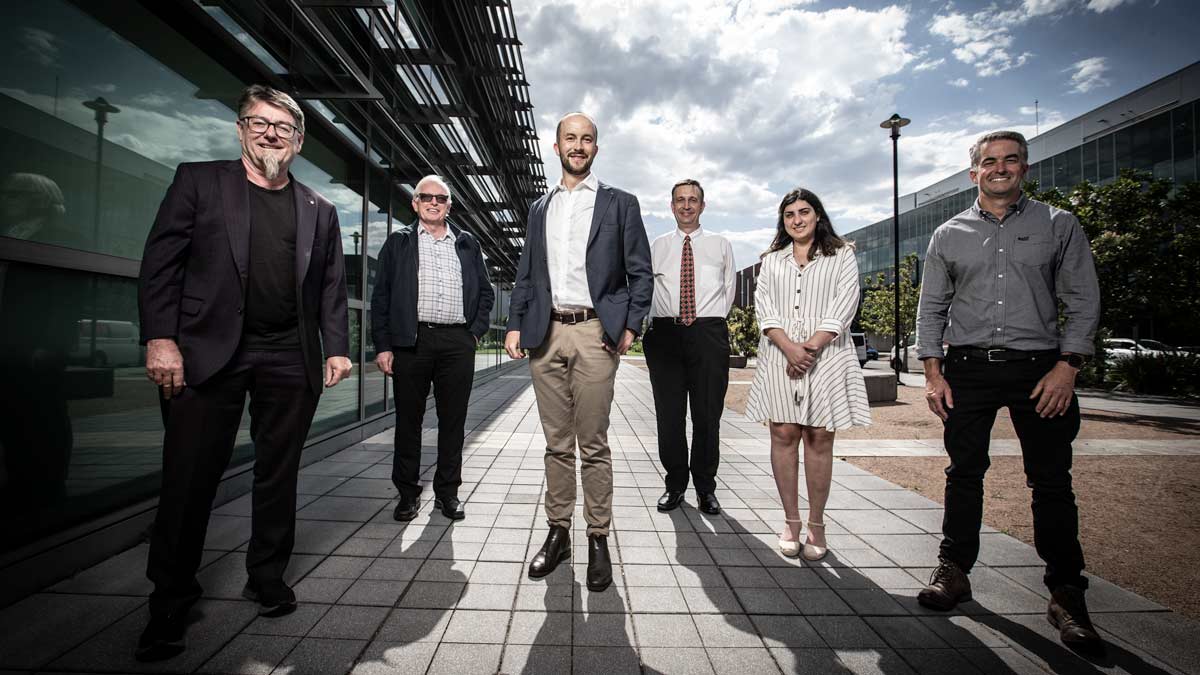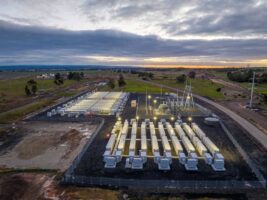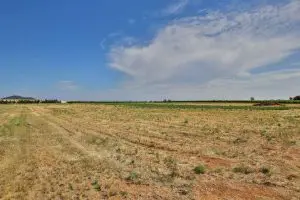Australian researchers have struck a deal to commercialise a new next-generation graphene material they say could unlock cheaper and better performing lithium-ion batteries.
Researchers at the ARC Centre of Excellence for Electromaterials Science (ACES), based at the University of Wollongong, say they have discovered a new form of graphene, called ‘Edge Functionalised Graphene’ (EFG), which is both highly conductive and processable for use in a range of electronics.
This includes lithium-ion batteries, with the innovative graphene material promising to improve the efficiency and lower the cost of battery technology used in energy storage devices and electric vehicles.
The research team, which included a collaboration with the Australian National Fabrication Facility – itself based at Melbourne’s Monash University – says the inclusion of graphene material in battery designs could help improve battery lifetimes and charging speeds by improving the conductivity of battery components.
One of the lead researchers, professor David Officer, says that a critical research milestone achieved by the group was confirming the graphene material could be ‘processable’ into new materials for use in battery products.
“Like many materials, finding a way to exploit the extraordinary properties of graphene in useful applications is critically dependent on making the graphene processable,” Professor Officer said.
“With EFG, we have been able to not only create a process that produces a unique graphene that can be used as a powder, dough, paste or dispersion, but a process that we believe is commercially scalable. Our commercial partners Sicona have recognised this.”
Director of ACES, professor Gordon Wallace, says the research team has undertaken the full process of first discovering the innovative material through to identifying its uses and commercialisation potential.
“This material, EFG, was discovered in our labs in 2017 and we have since tackled the fundamental research questions around determining what it actually is and, in parallel, issues that will assist translation, including simplifying the manufacturing process,” Wallace said.
“Taking amazing discoveries out of the research lab and into industry is a complex process. Often, we do not have common interests nor agree on the best way forward. But for different reasons we want to get great technologies to those that can use it, so everyone wins.”

Deputy vice-chancellor professor, Jennifer L Martin, says the outcome is an example of the successes being achieved by Australian researchers progressing clean energy technologies.
“The cutting-edge electromaterials discovery by professor David Officer and distinguished professor Gordon Wallace and their team demonstrates UOW’s commitment to tackling today’s most challenging global problems,” Martin said.
‘By facilitating research commercialisation, UOW and ACES are creating knowledge for a better world and creating new manufacturing and industry opportunities for Australia.”
The researchers are working in collaboration with next-generation battery material company Sicona, which considers the graphene material a potential ‘game-changer’ in lithium-ion battery materials.
Sicona has struck a deal to lead commercialisation efforts for the material, including by demonstrating its ability to be produced at a larger-scale, having acquired the intellectual property behind the graphene material.
“The UOW graphene will enable us to produce even better quality battery materials through adding EFG to enhance the electrical conductivity of the materials,” Sicona CEO Christiaan Jordaan said.
“It’s a simple and highly scalable production process that yields this unique EFG material, we believe it has a bright future in the rapidly growing battery market – cost-effective large-scale synthesis is absolutely key to success.”
“Leveraging the highly qualified researchers and the world-class labs at UOW will ensure that we move fast and that we successfully commercialise these inventions. This outcome would not have happened without the continual support we received from UOW Innovation and Commercial Research Unit who guided us along the journey,” Jordaan added.
In August, the Sydney-based Sciona announced that it had completed a $3.7 million Series A funding round to help establish its operations in Sydney. That funding round followed a successful $1 million funding round completed 2020.









